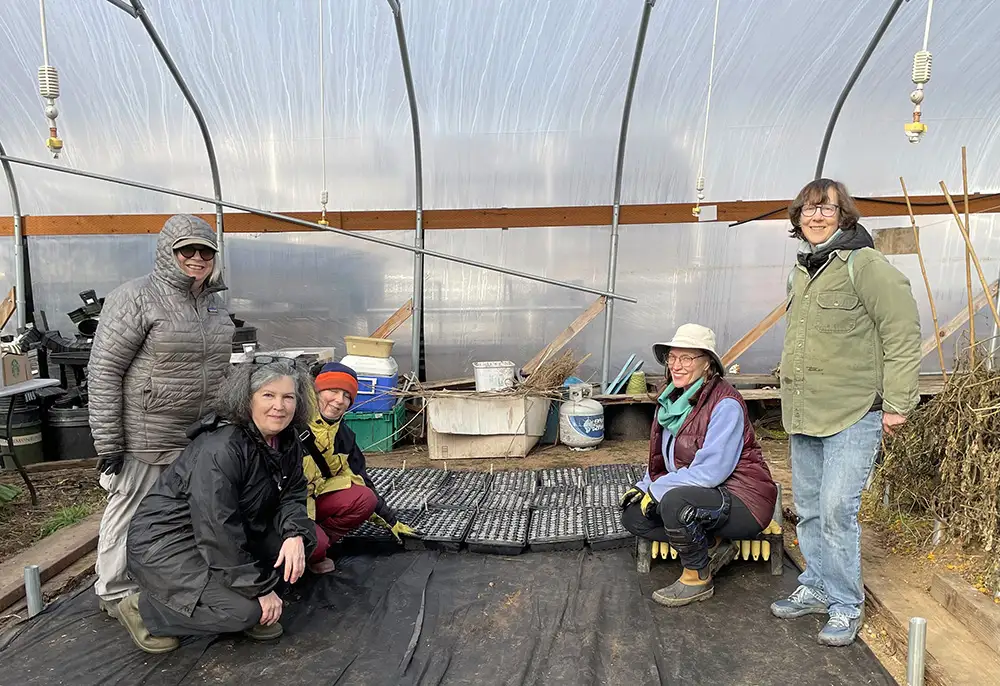Seeds ~ Our Hope for the Future

Seeds are like a promise, yet to be kept. They encompass hope, toughness, fragility, survival, and new beginnings. They are like a gift, wrapped in the most homely of gift-wraps, but with the best possible payoff when opened – a continuation of new life in our ecosystem. The Friends of Baltimore Woods (FOBW) group is in the midst of a new restoration project, which includes the growing of native wildflower and grass species from seed to increase botanical diversity in our meadow. We hope our project results in a natural area which more closely resembles the incredible biodiversity of Willamette Valley oak meadowscapes, now largely lost to human development. When we were researching plant materials to add to our meadows, we found that most native plant growers did not have many of the less common plant species which we sought for our hot and dry site, or had them in only very limited, or very expensive quantities.
However, our project, funded by a grant administered by the Portland Garden Club, had propagation as one of its goals, with the hopes of fostering not only more species of plants, but an opportunity for our group to learn more about propagating native plants from seed. This has benefit of being less expensive than purchasing nursery-grown plants, and offers a wider variety of species, greater botanical diversity, and a greater overall number of plants. Our aim is to transform the hottest, driest parts of our meadow, by adding plants most acclimated to those conditions.
In our research, we found many amazing native plant nurseries which promote ecological restoration as a core part of their mission. We chose to purchase plant materials from four local nurseries; Echo Valley Natives, Scholls Valley Native Nursery, Xera Plants, and Heritage Seedlings. However, we found a bonanza of native seed varieties at Heritage Seedlings, which has a native plant propagation program overseen by botanist Lynda Boyer, a noted Willamette Valley restoration ecologist. The seeds are locally sourced and verified Willamette Valley natives, many of which are becoming rare in our area due to the constantly shrinking meadow landscapes which were once a dominant ecosystem here.
Now FOBW members are learning about the practice of sowing native seeds, and are trying a variety of growing approaches to see what works best. We are learning about terms such as seed-dormancy, stratification, scarification, and imbibing. Our methods include sowing seeds in propagation flats in an unheated greenhouse, in outdoor home garden plots, and sowing some of each seed variety directly into our meadow. The cool, damp winter weather of the Pacific Northwest provides ideal conditions for seeds to break dormancy come springtime. But whether these tiny seeds will find the soil conditions they need, and survive the roaming & hungry populations of native birds & rodents, remains to be seen. It is all fodder for the great experiment of increasing our plant species diversity, and we will aim to track and note where our successes and failures lie in the months, and even years, of plant propagation that lie ahead. But hope is still there, still thriving, at the back of our minds, as we sow these tiny packages of ecological miracles into the augmented soil plots of the Baltimore Woods Lower Meadow.